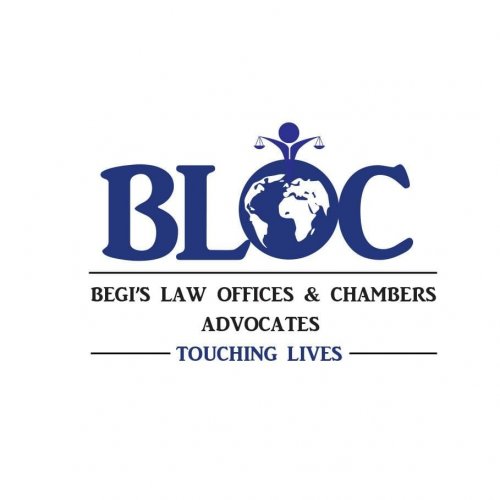Best Class Action Lawyers in Nairobi
Share your needs with us, get contacted by law firms.
Free. Takes 2 min.
List of the best lawyers in Nairobi, Kenya
About Class Action Law in Nairobi, Kenya:
Class Action law in Nairobi, Kenya is a legal mechanism that allows a group of people who have been similarly affected by a common issue to collectively bring a lawsuit against the responsible party. This type of legal action enables individuals to seek compensation, resolution, or other remedies on behalf of a larger group. Class Actions can be an effective way to address widespread injustices and hold organizations accountable.
Why You May Need a Lawyer:
There are various situations where you may require legal help in Class Action:
- If you have been part of a group affected by a common issue, such as consumer fraud, employment discrimination, or environmental damage, you may need a lawyer to represent your interests in a Class Action lawsuit.
- A lawyer can help navigate the complex legal process, gather evidence, and build a strong case on behalf of the class.
- If you believe that you have suffered harm but are uncertain if it qualifies for a Class Action, consulting a lawyer can provide clarity and guidance.
- In Class Action lawsuits, a lawyer can negotiate settlements, ensure fair distribution of any rewards, and advocate for the best possible outcome.
- Legal counsel can also provide advice on whether joining or opting out of a Class Action is the most appropriate course of action for your specific circumstances.
Local Laws Overview:
In Nairobi, Kenya, the legal framework for Class Action is primarily governed by the Civil Procedure Act and the Constitution. Some key aspects related to Class Action include:
- The Constitution of Kenya provides the right to a fair hearing, access to justice, and the right to seek compensation or relief for violation of rights.
- The Civil Procedure Act establishes the rules and procedures for Class Actions, such as certification requirements, notice requirements, and the management of the class and representative plaintiffs.
- Court decisions in previous Class Action cases can also influence the applicability and interpretation of Class Action law in Nairobi, Kenya.
Frequently Asked Questions:
Q: Who can file a Class Action lawsuit in Nairobi, Kenya?
A: Class Actions can be initiated by individuals or organizations who represent the interests of a larger group affected by a common issue. The court would need to certify the lawsuit as a Class Action and determine if it meets the necessary criteria.
Q: What is the advantage of filing a Class Action instead of an individual lawsuit?
A: Filing a Class Action allows individuals with similar claims to join together, increasing their collective strength. It can lead to efficient resolution, cost-sharing among members, and the ability to pursue legal action even if individual claims may seem small on their own.
Q: How are Class Action settlements distributed?
A: Distribution of settlements in a Class Action can vary. In some cases, funds are distributed among class members based on their level of harm or damages suffered. In other instances, the court may establish a plan for distribution, considering factors such as the number of affected individuals or the type of harm inflicted.
Q: Can I opt out of a Class Action lawsuit?
A: Generally, individuals have the option to opt out of a Class Action lawsuit if they prefer to pursue their own legal action independently. However, it is advisable to consult with a lawyer before making such a decision, as opting out may affect your ability to seek compensation.
Q: How long does a Class Action lawsuit take to resolve?
A: The length of time for a Class Action lawsuit to reach a resolution can vary significantly. It depends on factors such as the complexity of the case, the number of parties involved, the court's docket, and the available evidence. Some Class Actions may conclude within a few months, while others can take several years.
Additional Resources:
If you are in need of legal advice or further information regarding Class Action in Nairobi, Kenya, consider reaching out to the following resources:
- Kenya Law - Official website providing access to legislation, case law, and legal resources: www.kenyalaw.org
- Law Society of Kenya - Professional body for legal practitioners in Kenya, offering resources and a directory of lawyers: www.lsk.or.ke
- Kenya National Commission on Human Rights - Governmental organization promoting human rights, advocacy, and providing legal information: www.knchr.org
Next Steps:
If you require legal assistance in a Class Action case in Nairobi, Kenya, consider taking the following steps:
- Document all relevant information regarding your situation, including any evidence, interactions, or damages suffered.
- Research and contact reputable lawyers who specialize in Class Action litigation.
- Consult with a lawyer to discuss the specifics of your case and explore the available legal options.
- Provide the lawyer with all necessary documentation and be prepared to answer any questions to support your claim.
- Follow the guidance of your lawyer throughout the legal process, including any necessary court appearances or negotiations.
Lawzana helps you find the best lawyers and law firms in Nairobi through a curated and pre-screened list of qualified legal professionals. Our platform offers rankings and detailed profiles of attorneys and law firms, allowing you to compare based on practice areas, including Class Action, experience, and client feedback.
Each profile includes a description of the firm's areas of practice, client reviews, team members and partners, year of establishment, spoken languages, office locations, contact information, social media presence, and any published articles or resources. Most firms on our platform speak English and are experienced in both local and international legal matters.
Get a quote from top-rated law firms in Nairobi, Kenya — quickly, securely, and without unnecessary hassle.
Disclaimer:
The information provided on this page is for general informational purposes only and does not constitute legal advice. While we strive to ensure the accuracy and relevance of the content, legal information may change over time, and interpretations of the law can vary. You should always consult with a qualified legal professional for advice specific to your situation.
We disclaim all liability for actions taken or not taken based on the content of this page. If you believe any information is incorrect or outdated, please contact us, and we will review and update it where appropriate.

















